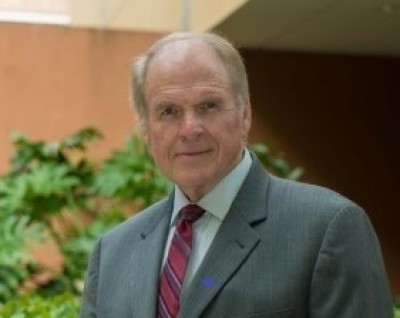The United Nations chief's apocalyptic discourse
The world’s nations have lost their way and are speeding toward a “pivotal moment” that will bring on a breakdown of global order. The planet is squeezed in the jaws of “enormous stress” as the nations are in a state of enmity and “paralysis.”
The speaker of those thoughts was not some raving religious zealot but the Secretary General of the United Nations, in a recent speech.

Antonio Guterres sounded like an Old Testament prophet with a major difference: the ancient prophets sounded their warnings to help people see the spiritual issues at the core of their crises, and to call them to God.
Guterres’ solution to what apparently is the global community’s “breakdown” is to allow that “pivotal moment” to lead to a “breakthrough scenario” in which it ceases its “suicidal war on nature, the collapse of biodiversity,” and “unchecked inequality” that rips away “the cohesion of societies” while pursuing technological progress “without guard rails to protect us from its unseen consequences.”
Guterres is right about the moment we occupy. The build-up to it has been going on since humanity opened the doors of creation to evil in the Garden of Eden. Since then, the fundamental struggle in the fallen world is between cosmos (order) and chaos (fragmentation and the collapse of boundaries) Guterres is seeing what many students of the Bible are noting: apocalypse is at the threshold.
Prophetic urgency can spur leaders and followers to futile idealism or stark realism. Guterres’ dreams of a world not torn apart by environmental abuse, poverty, inequality, and a host of other ills. His concern is helpful because we need to identify problems and keep the highest goals before us, but, sadly, it is more quixotic than curative.
The Secretary General offers the same old panaceas that have been attempted across time. While on a much more intense level, these solutions have tended to lead to an all-powerful state and the loss of human rights.
Ultimately, Secretary Guterres’s proposals result in a globalist vision that would rely heavily on global governance with the authority to mandate and enforce conformity. Guterres recognized this when he observed that “multilateral institutions” are “too weak and fragmented for today’s global challenges and risks.” Rather, “we need multilateralism with teeth ... a United Nations ‘2.0’”.
World governance has been a vision of some across centuries: The world’s nations will awaken to the threat brought on by competing national visions, nations’ misspent efforts to strengthen themselves at the cost of the global community, their nationalistic pride, their jingoism, chauvinism, isolationism, and missile-rattling bellicosity.
Guterres is right to point out all this, but, again, we have been here before though perhaps not on the same scale as now.
Of concern is the fact that Guterres is a notable Socialist leader. He was prime minister of Portugal under the Socialist Party, and president of the Socialist International. Be it extreme right-wing National Socialism or left-wing Marxist socialism, history reveals the kinds of nations and world such belief systems produce.
Compulsion is a major factor in these systems. If one does not do as compelled, he or she is, in contemporary lingo, “cancelled”—sometimes literally and physically.
The great problem, as I have argued often in these pages, is the loss of the sense of Transcendence. Important contemporary thinkers have alerted us to this, like Charles Taylor, and even Jordan Peterson, in his best-selling book, 12 Rules for Life: An Antidote to Chaos. “We must have the meaning inherent in a profound system of value or the horror of existence rapidly becomes paramount,” Peterson writes. “Then, nihilism beckons, with its hopelessness and despair... So: no value, no meaning.” The problem is (and the one Guterres wants to solve) is that “(b)etween our value systems... there is the possibility of conflict.”
Every nation has a “god” of some sort as the source and standard for ultimate values—even atheistic states and their “great leader” cults. The national system that develops around that “god” determines the worldview through which the society sees itself and the rest of the world for good and bad.
Since we humans are pre-wired for Transcendence, in the absence of a view of Transcendence as beyond ourselves we “deify” something else.
Tyrants love to make themselves and their states transcendent.
Such cultures are held together by raw power rather than authentic authority. Raw power is seized and sustained by those with enough muscle. By contrast, authentic authority is granted from the higher to the lower to those under authority.
Many would regard Jesus of Nazareth as the prime example of this. The Bible teaches that He is God in human flesh, yet He sees Himself as the “Son of man,” in the world to live as a servant. It is no wonder that He can say, toward the end of His earthly ministry: “All authority is given to Me in heaven and on earth...”
Yet merely to be religious is not necessarily to be Christlike.
Jesus Himself delivered an “apocalyptic discourse” to His disciples one day on the slopes of the Mount of Olives. He surprised them by prophesying that the mighty Temple which they could see, the house of institutional religion, would ultimately come down.
Institutional transcendence will not save us or heal problems like those Secretary General Guterres identifies. Temples will come down, towers will topple, and governments will be made up of humans classified as sinners.
Transformation that comes through an encounter with the truly Transcendence is the ultimate answer. Until we take it out of the “religious” closet and see it as the core dynamic of all life we will continue to dust off the old panaceas and try them one more time in a world spinning rapidly into chaos.
Will it be compulsion or transformation?
Wallace B. Henley’s fifty-year career has spanned newspaper journalism, government in both White House and Congress, the church, and academia. He is author or co-author of more than 20 books. He is a teaching pastor at Grace Church, the Woodlands, Texas.
For media inquiries, contact: ChristianPost@pinkston.co



























